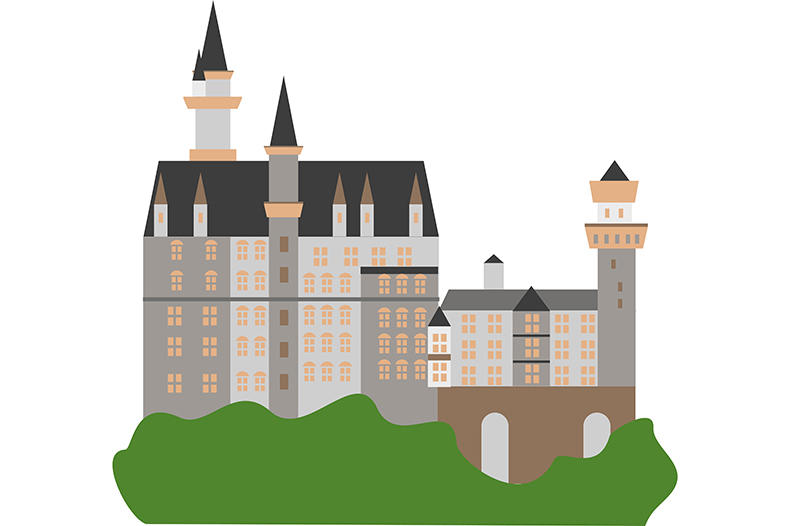Swansong for Souvenir
Rachel Garrod looks at the reasons why this appeal was considered unfounded. C-488/16 P, Bundesverband Souvenir – Geschenke – Ehrenpreise eV v EUIPO, CJEU, 6th September 2018.

C-488/16 P, Bundesverband Souvenir – Geschenke – Ehrenpreise eV v EUIPO, CJEU, 6th September 2018
Key points
- An appeal is not an opportunity for the Appellant to simply seek a new appraisal of the facts without at least claiming that there had been some previous distortion of those facts
- The marketing of goods/services will not necessarily be regarded as a tie connecting those goods/services to a particular geographical location, thus preventing registration of a mark under Article 7(1)(c)
In 2011, the Freistaat Bayern registered NEUSCHWANSTEIN (word mark), in various classes, at EUIPO. The Appellant, Bundesverband Souvenir – Geschenke – Ehrenpreise eV, subsequently filed an application for a declaration of invalidity on the basis that the application had been filed in bad faith as per Article 52(1)(a) of Regulation (EC) No 207/2009 and the mark itself was descriptive and non-distinctive as per Articles 7(1)(b) and 7(1)(c). EUIPO rejected the invalidity application, resulting in an appeal to the General Court (GC). This was dismissed in its entirety.
In September 2016, an appeal was filed at the CJEU. The Appellant submitted that the GC had:
- incorrectly considered that, for certain goods, the relevant public’s degree of attentiveness was higher;
- incorrectly found that the name “Neuschwanstein”, meaning “new swan stone”, was colourful and original, such that the relevant public would not make a connection with the goods/services concerned;
- contradicted itself by acknowledging that Neuschwanstein Castle was geographically locatable, but stating that it could not be regarded as a geographical location; and
- inaccurately stated that Neuschwanstein Castle was a museum.
The above part of the appeal was rejected as inadmissible. The Appellant restricted itself to disputing the appraisal of facts conducted by the GC, simply seeking a new appraisal of the facts, without claiming that there had in fact been any distortion of those facts by the GC.
Geographical question
The Appellant also submitted that the GC did not consider whether “Neuschwanstein” could be an indication of the geographical origin of the goods/services for the purposes of Article 7(1)(c).
In Windsurfing Chiemsee (C-108/97 and C-109/97), the Court held that, while an indication of the geographical origin of a product usually states the place where that product was or could be manufactured, the connection between a product and a geographical location might depend on other ties, such as the fact that the product was conceived and designed in that geographical location.
The Appellant therefore argued that the place where the goods/services were marketed should be regarded as a tie connecting those goods/services with Neuschwanstein Castle.
Appeal dismissed
This argument was dismissed, as it was considered unreasonable to conclude that, in the mind of the relevant public, the place of marketing to which the name “Neuschwanstein” related was a description of a quality or an essential characteristic of the goods/services covered. Although items were sold as souvenirs, because Neuschwanstein Castle was not the place where the goods were produced or services rendered, the trade mark could not be indicative of the geographical origin of the goods/services. This part of the appeal was therefore rejected as unfounded.
The other grounds of appeal regarding Articles 7(1)(b) and 52(1)(b) were also rejected as either inadmissible or unfounded. The appeal was therefore dismissed in its entirety.
Rachel Garrod is a Chartered Trade Mark Attorney at Appleyard Lees IP LLP


